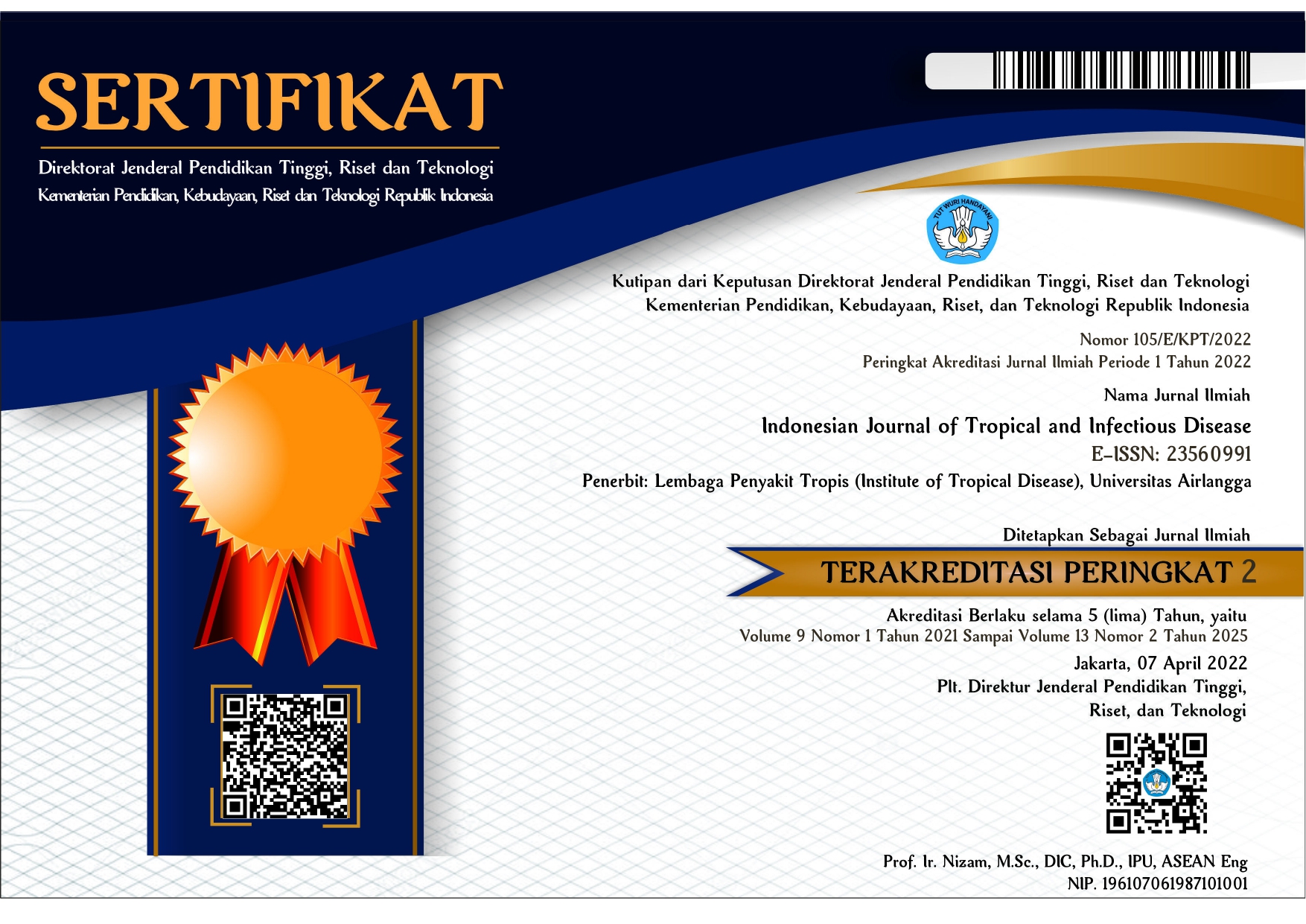AWARENESS OF USING RINGER LACTAT SOLUTION IN DENGUE VIRUS INFECTION CASES COULD INDUCE SEVERITY
Downloads
Background: In 2012, serotype of Dengue Virus had changed from Den-2 and Den-3 to Den-1. In 5–10 years ago, serotype of Den-1 case showed a mild clinical manifestation; but now as a primary case it can also show severe clinical manifestation. One of indicator is an increasing liver enzyme, AST and ALT, with level more than 100–200 U/L. Aim: To getting a better solutions for this problem. Method: Obsevasional Study had been done in medical faculty of Airlangga University (Dr. Soetomo and Soerya hospital) Surabaya on Mei–August 2012. There were 10 cases of dengue virus infection were studied, 5 cases got Ringer Acetate solution (Group A) and 5 cases got Ringer Lactate solution (Group B). The diagnosis was based on criteria WHO 2009. Result: Five cases of Dengue Virus Infection had showed a liver damage soon after using Ringer Lactate solution; AST and ALT were increasing more than 100–200 U/L;
but the other 5 cases showed better condition. It might be due to use Ringer Acetate that did not have effect for inducing liver damage. By managing carefully, all of the cases had shown full recovery and healthy condition when being discharged. Conclusion: Using Ringer Acetate as fluid therapy in Dengue Virus Infection is better to prevent liver damage than using Ringer Lactate.
The Indonesian Journal of Tropical and Infectious Disease (IJTID) is a scientific peer-reviewed journal freely available to be accessed, downloaded, and used for research. All articles published in the IJTID are licensed under the Creative Commons Attribution-NonCommercial-ShareAlike 4.0 International License, which is under the following terms:
Attribution ” You must give appropriate credit, link to the license, and indicate if changes were made. You may do so reasonably, but not in any way that suggests the licensor endorses you or your use.
NonCommercial ” You may not use the material for commercial purposes.
ShareAlike ” If you remix, transform, or build upon the material, you must distribute your contributions under the same license as the original.
No additional restrictions ” You may not apply legal terms or technological measures that legally restrict others from doing anything the license permits.























